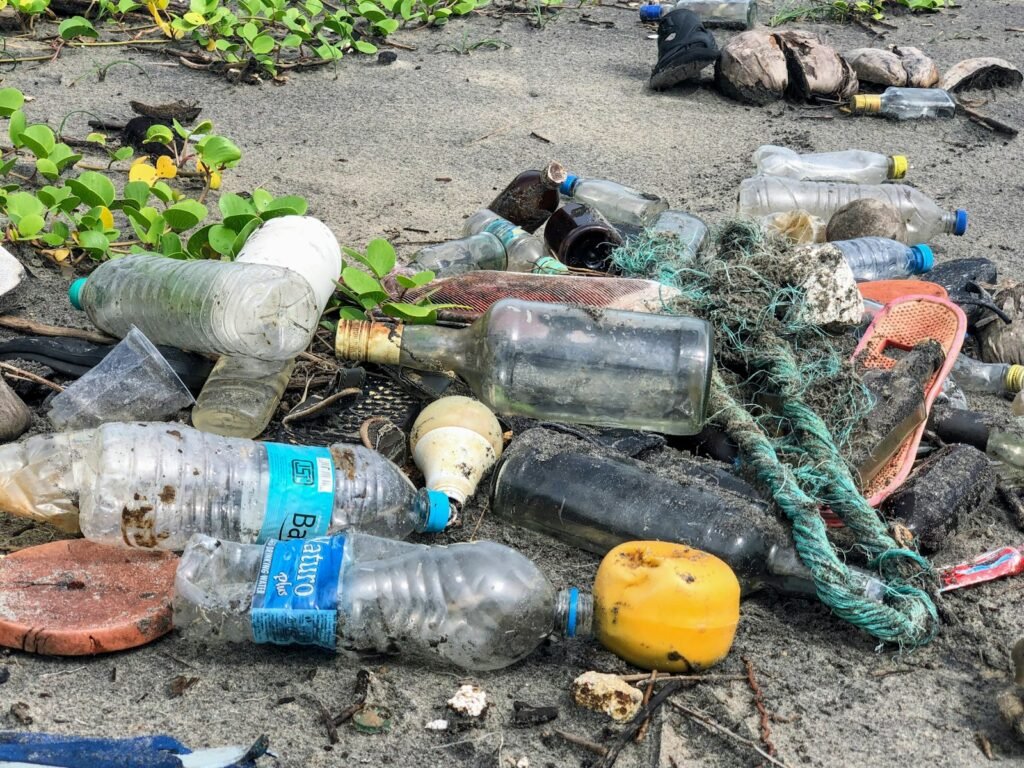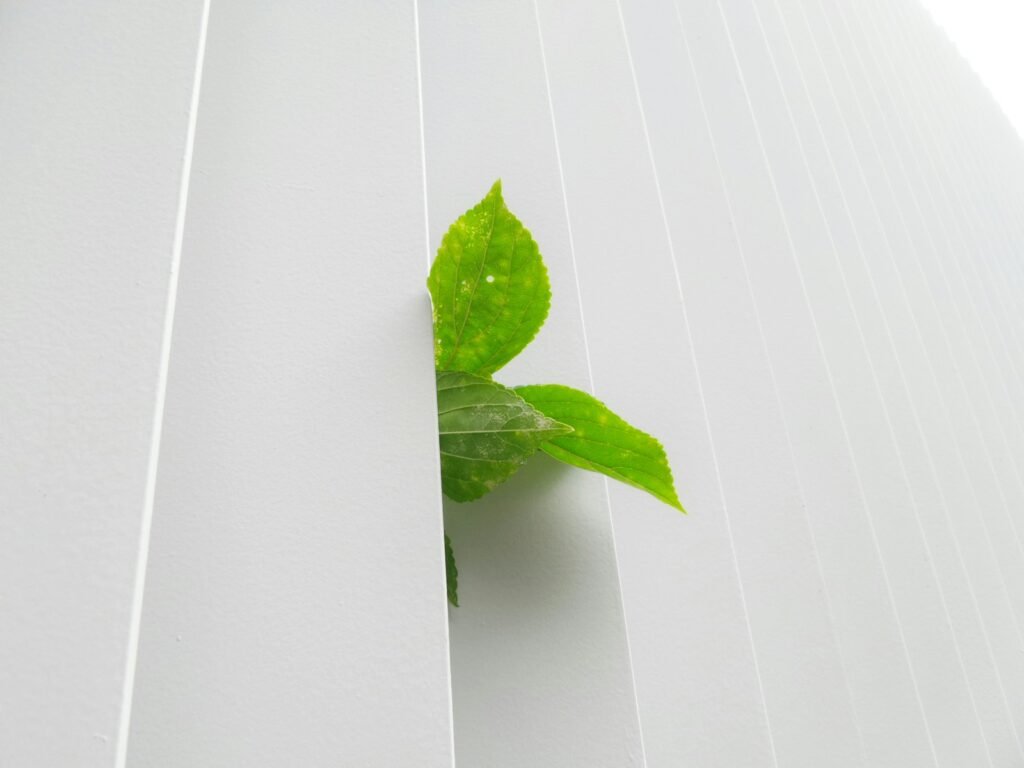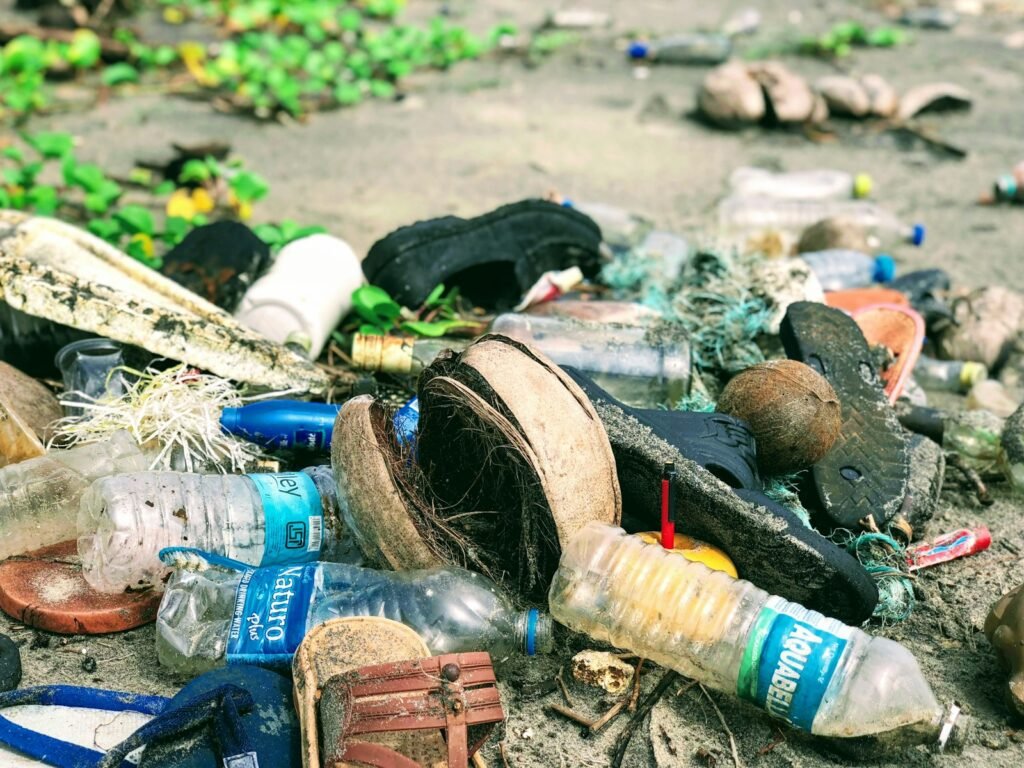If you’re looking to make a positive impact on the planet without feeling overwhelmed, starting a zero-waste lifestyle is a great way to begin. While it may seem daunting at first, small, sustainable changes can add up over time and lead to a healthier environment—and a happier you.

In this post, we’ll walk through 10 easy ways to start a zero-waste lifestyle that are practical, affordable, and fun. Whether you’re new to eco-friendly living or just looking for fresh ideas, these tips will help you take the first step toward a more sustainable life.
What is Zero-Waste Living?
Zero-waste living is all about minimizing waste in your daily life by making mindful choices that reduce, reuse, and recycle as much as possible. The goal isn’t to eliminate every single bit of waste (which is impossible), but to reduce the amount you generate and make sure what you do produce is reused or recycled responsibly.
The core principles of zero-waste living are based on the 5Rs:
- Refuse – Say no to single-use items.
- Reduce – Use less and avoid excess.
- Reuse – Give things a second life.
- Recycle – Properly dispose of materials that can be reused.
- Rot – Compost organic waste.
10 Easy Ways to Start a Zero-Waste Lifestyle
1. Use Reusable Bags and Containers
One of the easiest ways to reduce single-use plastic is by using reusable bags for shopping and reusable containers for storing food. Keep a few in your car, at home, and in your backpack so you’re always ready to go.
✅ Tip: Choose durable materials like cotton, canvas, or fabric for long-lasting use.
2. Switch to Reusable Water Bottles and Coffee Cups
Single-use plastic bottles and coffee cups are major contributors to waste. Replace them with reusable water bottles and coffee mugs that you can carry everywhere.
✅ Tip: Invest in a durable, leak-proof bottle for on-the-go hydration.
3. Reduce Single-Use Plastics in Daily Life
Avoid single-use plastics like straws, cutlery, and packaging by switching to reusable alternatives. For example:
- Use a reusable straw instead of a plastic one.
- Carry reusable utensils for eating out.
- Choose products with minimal or eco-friendly packaging.
✅ Tip: Keep a small bag of reusable items in your car for quick swaps.
4. Start Composting Organic Waste
Food waste is a huge problem, but it’s easy to turn it into something useful by starting a compost bin. Turn your food scraps and garden waste into rich soil for your plants.
✅ Tip: Use a small compost bin or a kitchen composting system if you don’t have a backyard.
5. Make Your Own Cleaning Products
Many household cleaners contain harsh chemicals that are bad for the environment. Instead, make your own eco-friendly cleaning products using natural ingredients like:
- Baking soda
- White vinegar
- Lemon juice
- Castile soap
✅ Tip: Try a simple all-purpose cleaner made with 1/2 cup white vinegar and 1 tablespoon baking soda.
6. Choose Sustainable and Ethical Brands
Support companies that use eco-friendly materials and ethical production practices. Look for products labeled as “sustainable,” “biodegradable,” or “zero-waste.”
✅ Tip: Read product labels and research brands before buying.
7. Unplug from Electronics and Reduce Energy Waste
Electronics contribute to e-waste and energy consumption. Try these tips:
- Turn off devices when not in use.
- Use energy-efficient light bulbs.
- Opt for smart power strips to reduce phantom energy use.
✅ Tip: Set a timer or reminder to unplug your phone, TV, and computer at night.
8. Eat More Plant-Based Meals
Meat and dairy production have a significant environmental impact. Try incorporating more plant-based meals into your diet:
- Swap out red meat for beans, lentils, or tofu.
- Try simple plant-based recipes like salads, soups, and stir-fries.
✅ Tip: Start with one meal a day that’s plant-based to ease the transition.
9. Opt for Public Transportation or Carpooling
Transportation is a major source of carbon emissions. Consider:
- Taking public transit instead of driving.
- Carpooling with friends or coworkers.
- Biking or walking short distances.
✅ Tip: Use a bike-sharing program if you live in a city with one.
10. Join a Zero-Waste Community or Group
You don’t have to go it alone! Find zero-waste communities online or in your local area. These groups can help you:
- Share tips and resources.
- Get inspired by others’ journeys.
- Stay motivated and accountable.
✅ Tip: Follow eco-conscious influencers on social media for daily zero-waste inspiration.
Overcoming Common Challenges
It’s normal to feel overwhelmed when starting a new lifestyle. Here are some common challenges and how to overcome them:
- Cost concerns: Start small and focus on the long-term savings.
- Lack of access: Find alternatives that work for you, even if they’re not perfect.
- Sacrificing convenience: Small changes can lead to big improvements over time.
Remember, zero-waste living is a journey, not a destination. Every step counts!
Tracking Your Progress and Staying Motivated
It’s important to track your progress and stay motivated as you make changes:
- Use a zero-waste journal or app to log your habits.
- Celebrate small wins, like going zero-waste for a week.
- Share your journey on social media or with friends.
✅ Tip: Take a photo of your “zero-waste” day and post it for motivation!
So What?
Starting a zero-waste lifestyle doesn’t have to be complicated. With these 10 easy ways to start a zero-waste lifestyle, you can make a meaningful impact on the planet without sacrificing comfort or convenience.
Remember, even small changes add up. Whether it’s using a reusable bag, making your own cleaning products, or eating more plant-based meals, every action helps create a healthier world for future generations.
So, take the first step today and start your journey toward a more sustainable life. The planet is counting on you!







